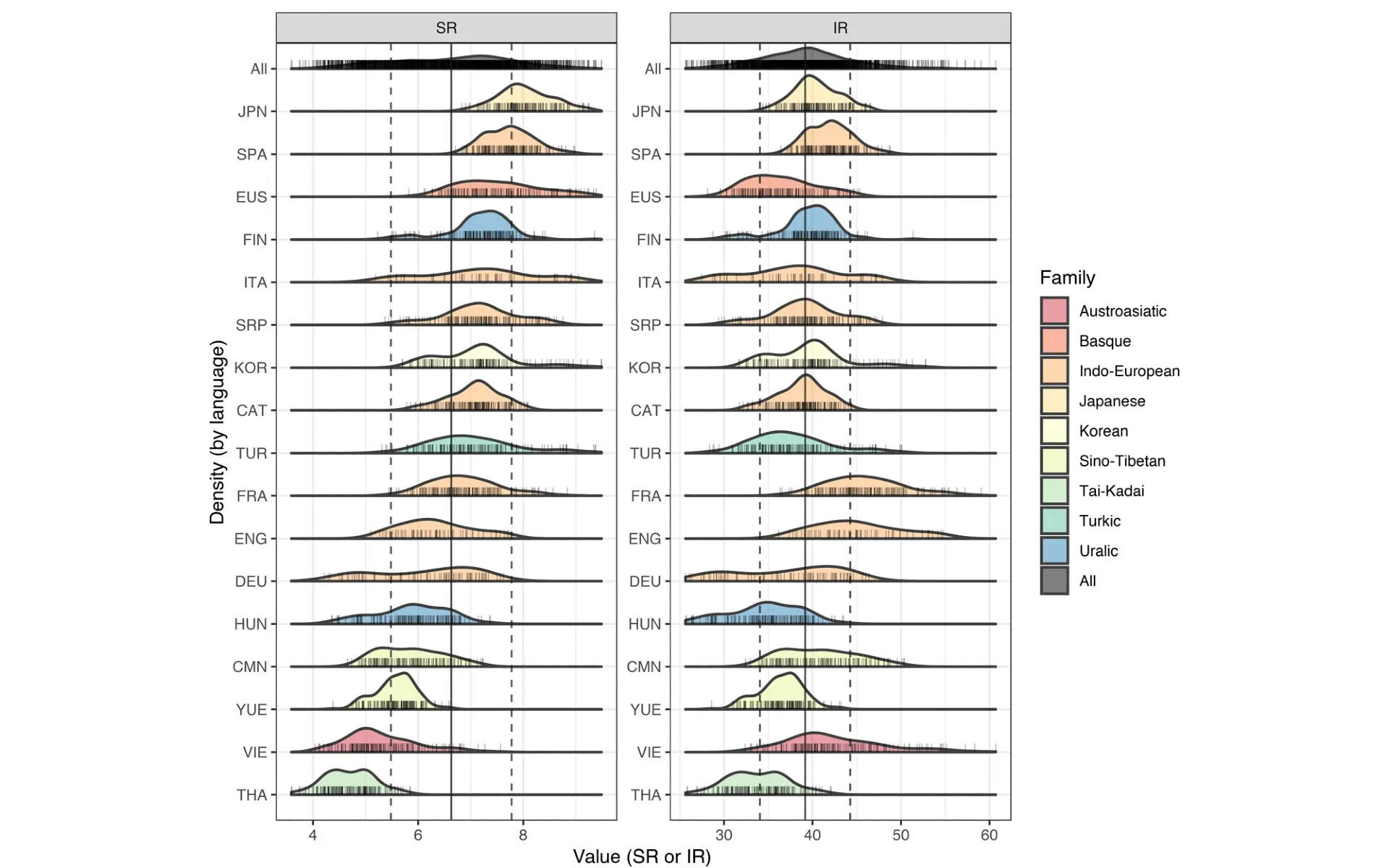Study reveals all languages share similar information speed despite differences
Research finds human languages transmit information at ~39 bits per second through natural balance of speech rate and density.

A study has revealed that human languages, regardless of their vast structural differences, transmit information at remarkably similar rates of about 39 bits per second. The research, published in Science Advances by scientists from the Université de Lyon, challenges long-held assumptions about language efficiency and communication speeds.
The study analyzed 17 languages from 9 different language families across Europe and Asia, finding that while languages vary significantly in their individual properties, they achieve similar overall information transmission rates through a natural balance of different factors.
According to the research team led by Christophe Coupé, languages that pack more information into each syllable, such as English with nearly 7,000 distinct syllables, tend to be spoken more slowly. In contrast, languages with fewer syllable choices, like Japanese with only 643 syllables, compensate by being spoken faster.
The research involved extensive analysis of 170 native speakers reading 15 texts translated into their respective languages. The scientists measured both the information density of each language and the speed at which it was spoken.
The methodology included:
- Recording of 170 adult native speakers
- Analysis of approximately 240,000 syllables
- Measurement of speech rates and information density
- Calculation of overall information transmission rates
The discovery of this apparent universal "sweet spot" in information rate suggests the existence of cognitive constraints that shape how humans communicate. The research indicates that languages operate within an optimal range of information transmission, avoiding extremes that could impede either cognitive processing or communicative efficiency.
How different languages balance speed and information
The study documented significant variations in how languages encode information:
- Japanese: Uses fewer distinct syllables (643) but speaks them more rapidly
- English: Employs many more syllables (6,949) but delivers them more slowly
- Vietnamese: Demonstrates high information density per syllable
- Basque: Shows lower information density but compensates with speed
Universal communication framework revealed
The research demonstrates that despite surface-level differences, languages converge toward similar information rates through what the researchers call "a multiscale communicative niche construction process." This suggests a universal framework for human communication that transcends individual language structures.
Facts and figures
- Average information rate: 39.15 bits per second
- Standard deviation: 5.10 bits per second
- Average speech rate: 6.63 syllables per second
- Speech rate variation: 4.3 to 9.1 syllables per second
- Information density range: 4.8 to 8.0 bits per syllable

